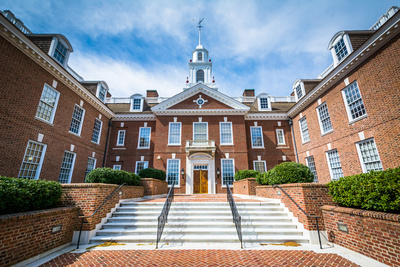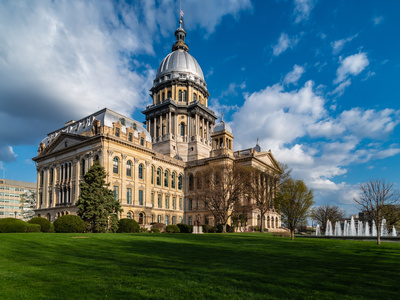-000055-400px.jpeg)
Tax & Budgets, Health Care & Wellness
Here’s How States Are Responding to Trump’s One Big Beautiful Bill Act
October 8, 2025 | Abbie Telgenhof, Morgan Scarboro
August 27, 2024 | Andrew Jones

Key Takeaways:
While many in state government affairs are busy traveling to summer conferences, three states — California, Nebraska, and Oregon — should be on the radar for all concerned about tax policy. Here's what's been happening in these three states and why it matters.
In California, two unique taxes have been proposed to support local journalism, Sen. Steve Glazer's (D) Data Extraction Mitigation Fee, SB 1327 and Asm. Buffy Wicks' (D) Journalism Preservation Act, AB 886. SB 1327 would, at a high level, charge a 7.25 percent gross receipts tax on data extraction transactions made to sell user information to advertisers. The money would fund a credit to local news outlets. AB 886, on the other hand, would require large online platforms to pay a fee for access to digital news content or pay a portion of advertising revenue to news organizations, similar to a recently passed law in Canada. The revenue would be deposited into a fund to support California journalism. These bills are still in play, but would need to be approved by August 31st to be enacted.
In Nebraska, Gov. Jim Pillen (R) called a special session last month to tackle rising property taxes and shift responsibility for education costs from localities to the state. To limit the property tax, Pillen and his legislative allies proposed LB 1, which was a broad expansion of the sales tax to many previously exempt goods and services, including many business services, such as advertising, accounting services, legal services, data processing, and some agricultural and manufacturing equipment, as well as an increase in "sin" taxes targeting alcohol, tobacco products, hemp products, gambling, candy, and soft drinks. Many opposed the massive expansion of the sales tax to professional services, noting the burden it would place on both businesses and consumers in the form of rising prices. On August 20th, LB 34 passed the Unicam. The compromise legislation established limits on property taxes and a credit against the school property tax but does not contain the sales tax provisions of LB 1. To pay for the plan, two bills, LB 2 and LB 3, were advanced to cut $38.5 million in state agency funding. Legislators in Lincoln may have gaveled out of this summer's special session, but we fully expect Pillen and his allies to return to the issue in 2025.
Lastly, a pending Oregon ballot measure proposes a 3 percent gross receipts tax on Oregon sales over $25 million (in addition to currently levied taxes). The funds would be partially divided between Oregon residents as a universal basic income-style rebate. Notably, legislative leaders of both parties and Gov. Tina Kotek (D) have all opposed the measure, noting the potential cost in competition and prices of consumer goods and the loss of money available to be spent on government services. The opposition coalition, No on 118, is comprised of a wide swath of industry, and even the left-leaning group Tax Fairness Oregon calls the measure “a hot mess.” The measure, previously IP 17, has qualified for the ballot, and will be decided by voters this November as Measure 118.
This article appeared in our Morning MultiState newsletter on August 20, 2024. For more timely insights like this, be sure to sign up for our Morning MultiState weekly morning tipsheet. We created Morning MultiState with state government affairs professionals in mind — sign up to receive the latest from our experts in your inbox every Tuesday morning. Click here to sign up.
-000055-400px.jpeg)
October 8, 2025 | Abbie Telgenhof, Morgan Scarboro

August 5, 2025 | Morgan Scarboro

July 30, 2025 | Bill Kramer